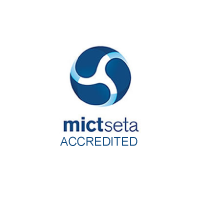Busting fake news and disinformation with Paula Fray
Poor research can lead to mistakes, complaints or even litigation that the best media lawyer would not be able to save you from. For individual reporters, research skills are the difference between a successful career and good reputation rather than infamy and the forced career change that comes with it. A mistake can travel around the world faster than you can hit send, and can haunt you and your career long after you’ve hit delete. Ensure your career and reputation are secure through fraycollege’s Research for Journalists. Join award-winning journalist Paula Fray as she shows you the tools you need to conduct research like a media pro and help you to ensure you’re trading in fact and not fiction.
4 weeks online eLearning
Course overview
Sound research is what separates you as a professional journalist from bloggers and casual social media posters. In an era where misinformation and disinformation are rife and ‘fake news’ is the catch-phrase of the day, public trust is the currency of modern journalism, and your reliability is your reputation.
As media practitioners, we have always been entrusted with bringing the public news and content that is factual, objective and relevant. But with the rise of online satire, clickbait, propaganda and more mistakes from colleagues as they try to keep up in digital-first newsrooms, even journalists are struggling to separate fact from fiction.
Fact-checking is an invaluable skill and a vital tool in your mission as a truth-teller. This has never been more true than in this era of internet content production and the ease and speed with which information now spreads. Your mistake can travel the world before you have a chance to correct it, and ‘fake news’ becomes ‘fact’ before a retraction can be issued.
As a journalist or writer, you must be able to differentiate between information, disinformation, misinformation and propaganda. To do this, you need to base your reporting on sound research and reliable sources. If you fail at this, your credibility and hard-earned professional reputation could suffer irreparable harm.
News, by definition, can be independently verified and is upheld by the principles of journalism and media integrity. While writing is an important part of your job as a journalist, it’s more important to ensure that the information you are basing your stories on factual, accurate and truthful, and that your representation of those facts are fair and unbiased.
The course should take you a maximum of 4 weeks and features interactive educational games, resources, a final quiz and assignments.
Outcomes and goals
- A fail-safe method to get your research right
- Planning and research time management
- Accessing the necessary information
- Time conscious fact-checking strategies
- Using different forms of sources – documents, experts etc.
- Understanding numbers and technical data
- Gathering and compiling information
- Sifting and selecting information for your story
- Building a story from the information
- Record keeping
- Cutting down the time needed for future story research
Training facilitated online or in person
Real time individual and group learning with our media and communications professionals.
eLearning
Learn online at your own pace on our eLearning platform.
Address
fraycollege,
Technology House,
Greenacres Office Park,
Victory Park,
Johannesburg,
2195
Contact us
Unsubscribe

frayintermedia is a partner media organisation to fraycollege which helps businesses and organisations to thrive in the media space. Find out more.
View our privacy policy



